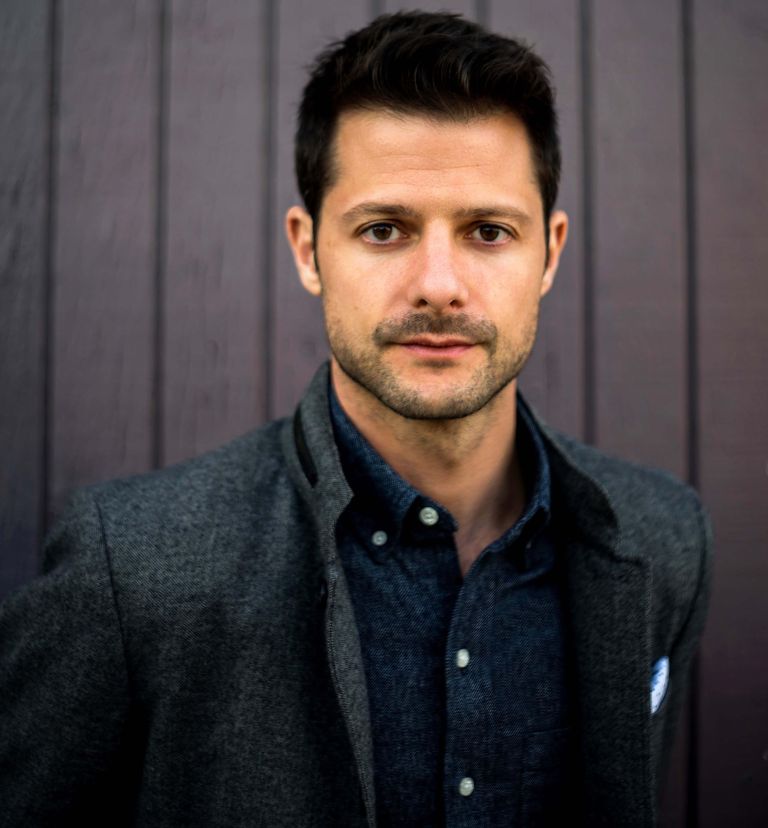
Doug Roland’s decision to cast a deaf-blind actor — likely the first such actor in film history — and build a movie around that actor came from a chance encounter.
Roland was returning home from a night out with friends in the East Village of Manhattan when he saw a man standing on the street corner.
“The stoplight changed and he didn’t move, and as I got closer I saw he was holding a sign saying he was deaf-blind and needed help crossing the street,” Roland recalled. “He had a notepad and wrote that he needed to get to a bus stop.”
Roland walked the man to his stop and ended up communicating with him, with the man using the notepad and Roland writing his responses on the man’s hand. When he left the man, he gave him a hug goodbye.
“He was a warm, open-hearted person and we made a real connection,” he said.
That interaction inspired the Los Angeles-based filmmaker to create his coming project “Feeling Through.” And the subject matter led Roland to connect with the Helen Keller National Center in Sands Point.
“He reached out to a group in California, and that group directed him to us,” said Sue Ruzenski, director of the Helen Keller National Center.
Roland said he had never met a deaf-blind person before running into the man on the street corner seven years ago. Ruzenski said this is the case for most people, as the deaf-blind population is small — she said she knew the man whom Roland met in the East Village — and thus people are unaware of the issue.
“One of our goals is to elevate the awareness of the community, and [a movie] is a point of outreach to people we could never touch,” she said. “It’s a way of getting the public interested and educated.”
“Feeling Through” will be a short film, Roland said, based on his encounter with the deaf-blind man. The film tells the story of a teenager in a tough situation who meets a deaf-blind man late one night and has to help him home. This task — and the teenager’s conversation with the deaf-blind man — helps him to open up and deal with the difficult circumstances of his own life.
Roland said that casting a deaf-blind actor for the role came to him early in the film’s production.
“When you’re creating stories about a certain community, you have to have a person from that community speak,” he said. “Right now the film industry has a microscope on inclusion, and rightly so. It’s an important consideration.”
While directing the film, Roland will be on camera himself. As this will be the first film to either Roland or Ruzenski’s knowledge to use a deaf-blind actor, a documentary will simultaneously be filmed to chronicle it.
As for who will play the role, Roland has not yet decided. He has worked with the Keller center to hold several casting sessions, which he said had gone well.
“We’ve introduced him to a number of people who fit the character,” Ruzenski said. “Chris Woodfill, who is our associate executive director and deaf-blind, has been helping [Roland] meet with candidates and communicating with him through technology.”
Roland said he planned to begin filming in New York in mid-November, with production to wrap in early 2019. After both “Feeling Through” and the documentary are completed, he plans to take the two on tour across the county, following the screenings with a question-and-answer session.
Like Ruzenski, Roland considers the films a way to spread awareness of the deaf-blind community.
“I was born and raised in New York City and thought I had met every type of person from every type of place, and it wasn’t until my mid-20s that I met deaf-blind or even thought about it,” he said. “We all have questions about things we’ve never encountered, and this could be a forum for people to learn more and ask questions.”
Reach reporter Luke Torrance by email at ltorrance@archive.theisland360.com, by phone at 516-307-1045, ext. 214, or follow him on Twitter @LukeATorrance.






